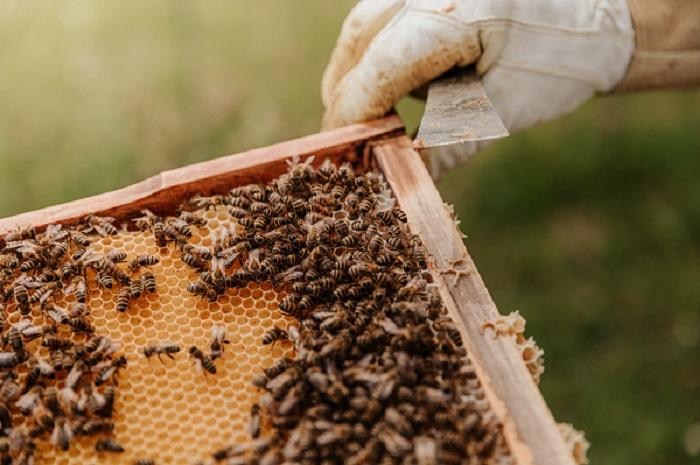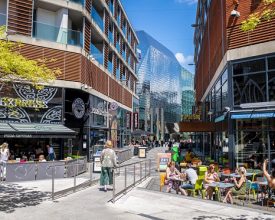Leicester’s De Montfort University is set to get a brand new buzz this month, as part of its bid to make the campus greener.
The university will welcome two new hives full of bees this April, in an effort to improve biodiversity across the site.
The bees will be located at the back of Leicester Castle Business School, overlooking Castle Gardens where they can help pollinate the plants on the park and surrounding green areas.

The bees come as part of the universities commitment to the United Nation’s (UN) Sustainability Development Goals (SDGs) in particular SDG 15 ‘Life and Land’- the SDGs provide the framework the university uses to guide activity on campus to help the world become a more sustainable place.
Mark Charlton, DMU’s Associate Director of Sustainable Development Goal Impact said: “During COP26 we asked staff to submit ideas for new innovations in teaching, research, knowledge exchange and campus operations for improved sustainability and a long-term reduction in carbon outputs.
“One of those ideas was keeping bees on campus to improve biodiversity. The suggestion has great synergy with current efforts to green the campus and was something we felt we could immediately pursue.
“We know reductions in global bee populations are a threat to pollination, which in turn risks biodiversity and affects food production globally.”
He added: “We have identified a safe location for the first hives with DMU Estates team, but to make this project a reality we need staff and students to come forward to train as beekeepers and volunteer to help care for the bees and the hives on campus.”
Being a city-based campus, the bees will also provide extra support in improving biodiversity by helping to pollinate green spaces across the city and local surrounding area as well as raising awareness to staff, students and the local community about the importance of protecting biodiversity and bees in particular.
Karl Letten, DMU Sustainability Manager said: “Even though the university is a city centre campus with limited green space there are still many steps that we can take to support biodiversity on campus and across the city.
“We have already implemented a number of great projects on campus and the introduction of beehives will continue that work.
“Bees and biodiversity in general has been declining for a number of years and any projects that helps to support biodiversity on campus whilst at the same time educating staff and students about this important issue will be a really positive step.”
As part of its new initiative, the university is looking for staff and students to volunteer to become trainee beekeepers and help create the very first DMU beekeeper’s community.
Anyone interested in volunteering, which includes full training from Leicestershire and Rutland Beekeepers Association (LRBKA), can contact mcharlton@dmu.ac.uk






